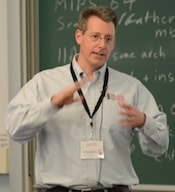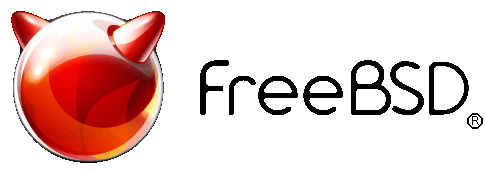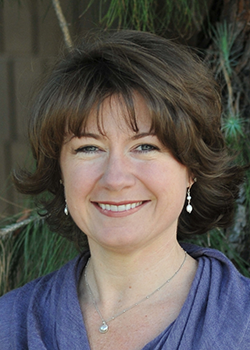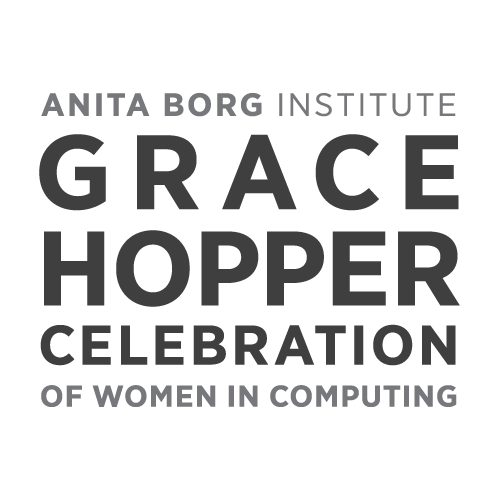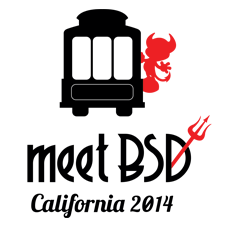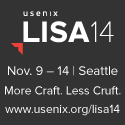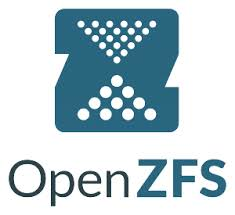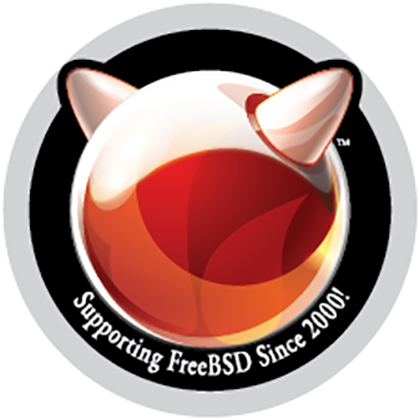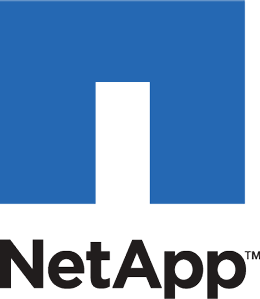December 22, 2014
In this Edition:
- Letter From the President
- Fundraising Update
- Development Project Updates
- FreeBSD Journal
- Welcome New Board Member
- Conference Updates
- EuroBSDCon
- Bulgaria Developer Summit
- 2014 Grace Hopper Celebration
- MeetBSD California 2014
- 2014 Silicon Valley Vendor and Developer Summit
- USENIX LISA ’14
- OpenZFS Developer Summit 2014
- Additional Sponsored Events
Welcome to our December 2014 Semi-Annual Newsletter!
As 2014 comes to an end, we wanted to share with you what we did this year to support the FreeBSD Project and community.
In this issue, you’ll get a summary of all the FreeBSD development work we’ve supported; highlights of all the conferences that we sponsored and attended; plans for the FreeBSD Journal in 2015; another great testimonial from a commercial user; and our Q1-Q3 financial reports. I’d be remiss if I didn’t mention my favorite part of our semi-annual newsletter, the insightful and always inspirational letter from our president and founder, Justin Gibbs.
Sit back, grab something to snack on, and get ready to be inspired by what people are doing to make this a better world.
Deb Goodkin
Executive Director
The FreeBSD Foundation
 Letter From the President
Letter From the President
The Learning Process
My first comp-sci course at UC Berkeley was a defining point in my education. Unlike many of my peers at the time, my adolescent experience with computers was as a power user, not as a programmer. Apart from a few sessions teaching the Logo turtle to draw geometric shapes on an Apple II in elementary school, I had never really thought about programming. I assumed my EECS degree would have a hardware focus. That was about to change.
CS60a, as it was called at the time, made few assumptions about my background. This was evident in the first week’s assignments: log into your instructional UNIX account, familiarize yourself with a few basic shell commands and the manual page system, learn how to navigate a text editor, exchange email with your TA, run a program and capture its output. I would only realize much later the cleverness and care put into these exercises and the tools chosen for completing them. Instead of Emacs or Vi, we were pointed to JOVE (Jonathan’s Own Version of Emacs) – mastered in minutes and preconfigured so the arrow keys on our VT220 terminals always worked. The tour of the UNIX shell conveyed the power of pipes and combining simple utilities to answer complicated questions, all while steering clear of arcane quoting rules or command options. And, perhaps most importantly, the course was taught using Scheme. We focused on recursion, functional programming, and evaluating computational complexity, not on learning the language syntax.
The course was self contained. Each lesson had well defined goals and built on the knowledge gained from the last. I knew the information necessary for me to successfully complete the homework was in the course materials. The gradual increase in difficulty gave me confidence that I could tackle each new challenge, just as I had conquered the ones before.
This was by no means an easy course. I spent many long nights debugging my programs, staring at the screen, frustrated that I couldn’t see what I was doing wrong. But that frustration was a necessary part of learning, not a result of being burdened by broken tools, arbitrary processes, or unnecessary information. I was free to focus on the material, to experiment, and to learn.
I cannot over emphasize the empowering nature of this type of curated experience. Most students are motivated to learn. When a goal is well explained and justified, and the student believes in the charted path to achieve it, that motivation is amplified by the anticipation of success. I was successful in CS60a. The material made sense. I was excited to learn more. I fell in love with programming.
I have some less pleasant memories from my time at Cal. To this day I still resent the differential equations course I took in my third semester. A disgruntled instructor forced to descend from his research and teach a lowly undergraduate class every four years, a graduate level text book that started each chapter with “As you already know…”, and tests that asked questions about topics never covered in either lecture or homework; it is hard to imagine a worse recipe for learning. I got an A- in the course, after the department forced the instructor to heavily curve the results, but I retained nothing.
Would I be a programmer today if my first real exposure to programming was given this type of treatment? It’s hard for me to imagine doing anything else, but a bad first impression can have lasting effects.
As we work together to bring new users into our community, the experience we create for our “students of the FreeBSD platform” will determine our ability to grow. If we are honest with ourselves, we’ll acknowledge that the experience we offer today is not as inviting or easily accessible as it should be. FreeBSD is harder to install than its competitors. Submitters of bug fixes sometimes receive silence, a critique that focuses solely on style(9) bugs, or a snap rejection because their mailer uses HTML or fails to wrap text at 80 columns. To outsiders, our code collaboration tools and processes can seem hard to learn, archaic, and arbitrary.
None of the above is a critique of the people that make up our community. It is instead the expected result of our evolution as a project over a 20 plus year span. Historical baggage will accumulate unless you do something about it. But first you need to look from the right perspectives so you can see the baggage at all.
The best teachers are life long learners. If, as members of the FreeBSD community, we maintain the dual perspectives of being both teachers and students, the things that must change in order to make our project more inclusive and inviting become clear. Our current processes and tools work for the current members of our community. Do they still reflect best practices? How easy are they to learn? How difficult are they to teach? Can we rationalize our choices in ways that others can understand? Is there a clear and logical path to being successful in our community? These are hard questions. We will not like all of the answers, but that should motivate us to change in positive ways.
For those of us comfortable with the status quo, this will be difficult. We will need to be open to learning new things, unlearning old ways, trying new tools, and accepting of some temporary personal discomfort as adjustments are made. I wear with pride many scars from using FreeBSD in it’s earliest, most unrefined, days, and from learning how to succeed in the FreeBSD community. Today can I navigate the most difficult aspects of a FreeBSD install and the sharper personalities in our community without getting cut? Sure. Would it have been better to learn how to do these things without getting cut in the first place? Absolutely. Not changing would be easier for the experienced user I am today. I accept change so the next new user can have an even better experience than my own.
At the FreeBSD Foundation, we are working hard to promote FreeBSD and to bring new users to our community. When someone tries FreeBSD or evaluates its technical advantages, their first impression is collectively all of our, the FreeBSD community’s, responsibility. Embrace ways that allow first time users to be successful and for first time contributors to feel valued. Be open to learning from the experience of newcomers even as we expect them to learn our tools and processes. Propose and implement ways to simplify interactions with the project. Help create a safe and productive learning environment. Find time to teach. Together we can make using and building FreeBSD an even more exciting and rewarding experience. Even if it results in just one new contributor left with a positive experience using FreeBSD – an experience relayed to their friends and coworkers – it will be worth the effort.
Justin T. Gibbs
President and Founder
The FreeBSD Foundation
 Fundraising Update
Fundraising Update
As we approach the end of 2014, we are busy with our final fundraising push and finalizing our plans for next year. This will be the first time in our fourteen year history that we have met and exceeded our fundraising goal at the start of our year-end campaign. But, that doesn’t mean we’ve stopped fundraising. While it is a relief to us knowing that we met our minimum goals, there is so much more we want to do to help grow and improve FreeBSD. To that end, we are fully committed to bringing in more donations, increasing the number of donors, and reaching out to more commercial users to not only donate this year, but to consider committing to a multiyear pledge.
You’ll notice that we changed our fundraising meter. Our meter now reflects the number of donors for the year. We’ve set a 2014 goal of 2000 donors, or community investors as we like to call them. This is an increase of 268 investors from last year. Why do we care how many people donate as long as we meet our funding goal? First, it shows the world that we have a strong community supporting FreeBSD. Second, it helps us meet our public support test with the IRS, and last, it will help ensure a stable and consistent funding stream to help sustain our growth of supporting FreeBSD.
It’s been an incredible and productive year for the Foundation and FreeBSD. We’ve funded more development projects and conferences, created new FreeBSD advocacy and educational materials, provided on-time FreeBSD releases, supported FreeBSD recruiting efforts, purchased more hardware to build the FreeBSD infrastructure, and provided more legal support for the Project.
Thanks to your donations we’ve been able to provide the following funding and support this year:
Development projects and improvements we supported this year:
- Updated video console (Newcons)
- Auditdistd improvemetns for FreeBSD cluster
- ARMv8 support in FreeBSD
- Adding modern AES modes to OpenCrypto (to support IP/SEC)
- UEFI system boot support
- Capsicum component framework
- Multipath TCP research project
- Modern Automount Daemon
- Virtual memory profiling and scalability improvements
- Build toolchain improvements
- Virtual machine images for hypervisors and cloud providers
- Native iSCSI kernel stack
- Virtual memory (VM) and file system (VFS) enhancements and bug fixes
- Release support for embedded platforms
- iSCSI stack improvements
- Miscellaneous standards conformance improvements
- Bootloader improvements
- Debugging improvements
- thread library fixes
Conferences and Summits we financially supported this year:
- AsiaBSDCon 2014 Conference
- BSDCan 2014 Conference
- Ottawa 2014 Developer Summit
- Ottawa 2014 Vendor Summit
- EuroBSDCon 2014
- Bulgaria Developer Summit
- NYCBSDCon 2014
- Cambridge Developer Summit
- MeetBSD 2014
- Silicon Valley Developer/Vendor Summit
- OpenZFS Vendor Summit
- Grace Hopper Celebration
We provided FreeBSD release engineering support, resulting in on-schedule releases.
We provided FreeBSD cluster administration support.
We provided 18 travel grants to help developers travel to conferences for important face-to-face interaction, collaboration, and FreeBSD advocacy.
We increased our FreeBSD advocacy efforts by hiring a full-time marketing director, who helped promote the Project by creating literature to inform and educate about FreeBSD, helped recruit people to the project, and published and shared FreeBSD news around the world.
We produced the successful online magazine, the FreeBSD Journal.
We invested around $100,000 in hardware to improve the FreeBSD infrastructure by providing equipment to our co-location facilities at Sentex, Yahoo!, NYI, and ISC.
And last, we continued protecting FreeBSD IP and providing legal support to the Project.
Donate today to help us continue and increase our support of the FreeBSD Project and community worldwide! Making a donation is quick and easy. Click here to make a donation.
contributed by Deb Goodkin
 Development Project Updates
Development Project Updates
As I look back over the projects sponsored by the FreeBSD Foundation in 2014 I am impressed with both the breadth and depth of the projects we’ve been able to take on. Our permanent Foundation staff members have bolstered the Foundation’s historical focus on independent projects, and have enabled a new capability in maintaining, improving, and fixing bugs in existing FreeBSD functionality. We’ve also continued to fund individual developers in the FreeBSD community with project grants. Most of our 2014 project work is available to users in the FreeBSD 10.1 release.
I’ll first highlight our new autofs-based automount daemon. Over time we’ve heard from FreeBSD users experiencing trouble with the older amd automount daemon. Reported issues included unreliable operation and a configuration file format incompatible with other systems. Foundation staff member Edward Tomasz Napierała undertook a project to develop a modern replacement. This new automounter is built on a synthetic autofs filesystem, the same approach used on Solaris, OS X, and Linux, and the automountd daemon uses the same map file format as these other systems.
Bjoern Zeeb is a long time FreeBSD committer and currently a PhD student at the University of Cambridge. He tested FreeBSD’s new autofs-based automount daemon in the Cambridge Computer Lab computing environment. Bjoern said, “We were happy to be an early adaptor of FreeBSD’s autofs. It was the last missing piece preventing us from seamless integration of FreeBSD desktops and servers with the Lab’s infrastructure. I am certain autofs will help others deploying FreeBSD in a lot of different environments as well. Thanks to Edward and the FreeBSD Foundation for making it happen.” The automounter is in the FreeBSD 10.1 release.
Edward also continued refining the Foundation-sponsored in-kernel iSCSI target and initiator stack. This project first released in FreeBSD 10.0 last year, but development on additional performance improvements and features continued, arriving in 10.1. Edward also helped Chelsio Communications implement iSCSI offload for their 10Gbps and 40Gbps network interfaces.
I continued integration work on the Foundation-sponsored vt(4) updated console, and Universal Extensible Firmware Interface (UEFI) boot support. The new console is now available and usable in FreeBSD 10.1, with a few outstanding tasks planned for early 2015. Initial UEFI boot support is also available in FreeBSD 10.1, which will become a requirement for FreeBSD to boot on contemporary hardware.
In addition to UEFI boot support we are starting to work on Secure Boot. This will provide a verified boot path from the system firmware to the FreeBSD loader and kernel. We will also work to make available a signed loader in order to ease installation on systems with Secure Boot enabled out of the box.
We started a development project to add support for the new 64-bit ARM architecture to FreeBSD. We are collaborating with ARM, Cavium, Semihalf and Andrew Turner to develop the port, which will target Cavium’s ThunderX platform as the initial reference target for FreeBSD/arm64.
We learned of a FreeBSD performance issue in FreeBSD’s virtual memory (VM) subsystem that became apparent after the release of a new version of PostgreSQL. Foundation staff member Konstantin Belousov is an expert on the VM subsystem and undertook a very detailed analysis to understand the specific cause of the bottleneck. Kostik identified a number of improvements and opportunities to implement a fast path for common cases, avoiding expensive code paths. With these changes we saw a transactions-per-second benchmark increase by five times.
We’ve identified a need to improve FreeBSD on virtual machine deployments, and Foundation staff member and FreeBSD release engineer Glen Barber has been working on tooling to generate virtual machine images as part of the standard FreeBSD release process. This includes images for standard hypervisors and popular cloud platforms.
One aspect of the Foundation’s mission is supporting research based on FreeBSD. This year we provided funding for Nigel Williams, a Master’s student at Swinburne University of Technology for the development of an experimental multipath TCP (MPTCP) stack for FreeBSD. An initial version of the patch is available now, while a second iteration should be released shortly. This rework makes better use of existing TCP code, which should result in an easier merge to FreeBSD.
Finally, we provided some standalone project grants. Paweł Jakub Dawidek received a grant for improvements to the auditdistd audit trail distribution daemon. The FreeBSD project cluster administration team requested support for sending to multiple destinations as well as public key infrastructure in order to ease deployment on new cluster hosts.
John-Mark Gurney received a grant to implement modern AES modes to FreeBSD’s cryptographic framework. This project makes use of specialized cryptographic instructions found in contemporary Intel processors to achieve high performance, with a follow-on goal of improving IPsec performance on FreeBSD.
Looking at this list of projects, staff tasks, and grants that we’ve been able to support shows a remarkable increase in the direct development support that we’ve been able to provide to the FreeBSD project. As we enter 2015 in a strong position I look forward to an even greater level of support, especially in security, performance, and development tools.
contributed by Ed Maste
FreeBSD Journal
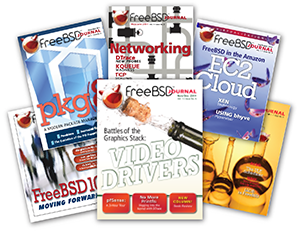 With careful guidance from its distinguished Editorial Board and contributions from leading authors in the field, FreeBSD Journal is publishing important, cutting-edge content–and reader response has been ecstatic. In its first year of publication, the new magazine has attracted over 5,600 subscribers and subscription numbers are growing!
With careful guidance from its distinguished Editorial Board and contributions from leading authors in the field, FreeBSD Journal is publishing important, cutting-edge content–and reader response has been ecstatic. In its first year of publication, the new magazine has attracted over 5,600 subscribers and subscription numbers are growing!
Upcoming issues will cover topics as diverse as Interacting with FreeBSD; Storage; Services; FreeBSD 11 in the Enterprise; Networking; Cloud-Root BSD; and Performance Tuning. In addition to technical articles, each issue contains a calendar of upcoming events; provides a bit of history with “this month in FreeBSD;” offers a Conference Report; Book Reviews and the must-read Ports Report and svn update columns. Every issue of the magazine contains essential information for anyone working with FreeBSD and should not be missed!
FreeBSD Journal is available at the Apple, Google and Kindle stores at $19.99/year for six (6) issues or $6.99 for a single issue. The magazine is also available in a browser version for reading on a desktop or laptop computer. You can learn more about the magazine and/or subscribe to any version here.
Welcome New FreeBSD Foundation Board Member: Cheryl R. Blain
We are pleased to welcome Cheryl R. Blain to the Board of Directors. She joins the Foundation’s board with extensive experience managing software development and building strategic alliances for privately-held, small-cap companies. Cheryl’s background includes community outreach, marketing and fundraising efforts with non-profit organizations. Hear directly from Cheryl and her reasons for joining the board here.
One of the responsibilities of our board is to focus on the big picture, by defining our vision, mission, strategic direction, project planning, as well as governing our organization. Our board has decades of experience on working on FreeBSD in design, development, documentation, research, education, and advocacy. We’ve been strong in providing support in the project development area. As we’ve grown, we’ve identified the need to expand our board, and we’ve identified skills, talents, and experience we want in new board members.
Cheryl fills the need for bringing on someone who has a strong business development background. She will help provide a clear direction, strategic planning, and guidance for us to support FreeBSD in the future. In order for us to continue our growth, we need a more stable and consistent funding pool. Cheryl’s extensive fundraising background and business connections will help us build and strengthen our business relationships to encourage multi-year donations. She brings with her a passion for FreeBSD and a desire to use her talents to advance the mission of both the Project and the Foundation.
Conference Updates
 EuroBSDCon 2014
EuroBSDCon 2014
What is EuroBSDCon?
Since 2001, the EuroBSDCon conference has been held within one of the European countries. In 2014, the 13th EuroBSDCon was held September 27-28, in Sofia, Bulgaria. Two tutorial and devsummit days preceded the conference on the 25th and 26th of September.
The conference this year attracted 225 highly skilled engineering professionals, software developers, computer science professors, users and students from all over Europe and also other parts of the world. The goal of EuroBSDCon is to exchange knowledge about the BSD operating systems, facilitate coordination and cooperation among users and developers and to promote business friendly BSD licensed open source software.
How does FreeBSD benefit from EuroBSDCon?
The main conference days were a great opportunity for FreeBSD developers to present their work to the audience. The conference started with a very interesting keynote by Jordan Hubbard who talked about the past and the future of FreeBSD. Additional FreeBSD topics presented include “ZFS internals implementation” by Kirk McKusick, “Optimizing GELI performance” by John-Mark Gurney, “The state of ASLR in FreeBSD” by Shawn Webb, and many others. The presentations and video recordings of all talks are expected to be ready soon and will be uploaded on the official web site.
Last, but not least, EuroBSDCon is a great opportunity to meet developers from the other BSD camps, discuss ideas, exchange knowledge and experience to the benefit of everyone.
Sponsorship from FreeBSD Foundation
Sponsoring and donations are required besides attendee entrance fees to run and cover the cost of the conference. The event sponsorship income is used for speaker travel allowance and a complementary hotel room. Additional sponsor income, after speaker costs, goes towards the venue cost and proportionally lowers the entrance fees for attendees. This year the FreeBSD Foundation was a gold sponsor of the conference and the organizers are very thankful to the FreeBSD Foundation for their continuing support.
Future Conferences
EuroBSDCon 2015, will be hosted in Stockholm, Sweden. Exact dates are still to be announced.
contributed by Shteryana Shopova, EuroBSDCon Organizer
Bulgaria Developer Summit
A FreeBSD Developer Summit was held two days preceding EuroBSDCon 2014. Some 40 developers and guests participated in an informal gathering, starting out with a brainstorm session on ongoing projects and features for the FreeBSD 11.0 release. As always, so many exciting projects are being worked on that we quickly ran out of space on the wall to write them all down!
Starting out with such an informal brainstorm gave a good impression of who was in the room and what topics they were interested in, and an agenda for the rest of the summit was quickly drawn up. The rest of the first day was spent in plenary session with topics everybody was interest in, ranging from 10G network performance to port and packages and embedded architectures. The second day, the crowd split up in two tracks with topics such as DNS, ASLR, cryptography and documentation. All in all, a lot of productive discussions were had of which you soon should see the result in a repository near you. Thank you to FreeBSD Foundation for sponsoring the event.
contributed by Erwin Lansing
 2014 Grace Hopper Celebration
2014 Grace Hopper Celebration
The FreeBSD Foundation was a Silver Sponsor for the Grace Hopper Conference held in Phoenix, AZ on October 8-10. The Grace Hopper Celebration of Women in Computing is the World’s Largest Gathering of Women Technologists. This year, the conference was capped at 8,000 attendees (by fire marshall limits) with a waiting list, which was nearly twice the size of last year’s. About 800 attendees were male, which were mostly booth personnel. About 70% were students or recent graduates from mostly North America. There were quite a few students from Africa (Uganda, Kenya, South Africa) and Sweden. Both Google and Amazon sent over 500 female employees, which represents a substantial amount of money. Most employers had t-shirts made for their attendees for this event with some inspirational message with corporate branding.
The organizers were very pleased at the success of the Open Source Day and plan on expanding on it next year. My talk on “An Introduction to the FreeBSD Project” was very well received and I had a chance to speak with nearly every attendee (~120) at some point during the conference. Most had never thought of open source in relation to their education or career and had no idea that a mentoring structure was a possibility. The expo area itself was huge with a dizzying amount of foot traffic. We were kept busy both days answering questions about FreeBSD, getting involved, GSoC, and post-graduate research. We were impressed at the calibre of the students and their programs: robotics, realtime operating systems, space tech, aeronautics, etc. Shteryana brought her signed copy of the The Design and Implementation of the FreeBSD Operating System which generated a lot of interest.
We look forward to presenting and hosting another FreeBSD booth at Grace Hopper 2015, to be held in Houston, October 14-16.
contributed by Dru Lavigne
 MeetBSD California 2014
MeetBSD California 2014
This year’s MeetBSD California Conference was a tremendous success. Nearly 200 people attended the conference, which was held at Western Digital’s San Jose office, over the course of November 1-2, 2014. The conference was held in the “unConference” format, and featured breakout sessions and lightning talks, as well as full-length talks from renowned figures in the BSD Community.
James Nixon, Master of Ceremonies, kicked things off on day one with the Introductions/Interactive Plenary. Rick Reed of WhatsApp and Jordan Hubbard of iXsystems followed with their respective keynote talks, “WhatsApp: Half a Billion Unsuspecting FreeBSD Users” and FreeBSD: The Next 10 Years.”
David Maxwell followed with the first full-length talk of the afternoon, “The UNIX Command Pipeline – using UNIX in the Renewable Energy Era.” Next was Alex Rosenberg, who discussed Sony’s use of BSD in “Meet PlayStation 4.” Josh Paetzel led an unforgettable demonstration, “FreeNAS & ZFS: The Indestructible Duo – Except for the Hard Drives.” ZFS, Embedded/ARM64, Networking, and Infiniband breakout sessions followed. Kirk McKusick closed out the first day with an engaging historical overview of BSD.
Later that evening, attendees congregated at the Four Points Sheraton for the MeetBSD social mixer.
On the second day of the conference, Brendan Gregg kicked things off with a well-attended keynote on “Performance Analysis.” Brendan was followed by “mystery speaker” Corey Vixie, who spoke about “Web Apps on Embedded BSD.” After lunch, Robert Ryan of WD delivered his talk, “At the Heart of the Digital Economy – Deep Storage Innovations for New World Datacenter.” Several lightning talks followed from prominent members of the BSD Community: Alfred Perlstein, “Inspiring the Youth:” Kip Macy, “iflib,” Allan Jude, “UCL Config,” and Scott Long, “Netflix Update.” And who can forget the final, highly provocative talk of Day 2 — Claudia Yadathi, “Useability Raccoon – It Isn’t 2002.”
During the closing session, two raffles were held. During the first raffle, led by Deb Goodkin, the FreeBSD Foundation gave away two free subscriptions to the FreeBSD Journal.
During the second raffle, facilitated by WD employees Monet Huang and CarolAnn Hedemark, autographed books by Kirk McKusick (“The Design and Implementation of the FreeBSD Operating System“) and Joseph Kong (“FreeBSD Device Drivers“) were raffled off, along with various other schwag items and two grand prizes. One lucky attendee won a Sony PlayStation 4, complete with game bundle, and another won a FreeNAS Mini!
We’d like to think this fourth biennial installation of MeetBSD California was the most successful to date. For those of you who missed it, fear not — we’ll be back again in 2016!
contributed by Denise Ebery, MeetBSD 2014 Organizer
2014 Silicon Valley Vendor and Developer Summit
The 2014 Silicon Valley Vendor and Developer Summit was run on two days, November 3rd and 4th, at Western Digital’s campus, south of San Jose California. The event was scheduled to follow the MeetBSD conference at the same venue. We had nearly 100 attendees including FreeBSD developers as well as representatives of many of the companies that use FreeBSD in their products, including: ARM, Broadcom, CallForTesting, Cavium, Citrix, EMC/Isilon, Groupon, Intel, Limelight Networks, Microsoft, Nahanni Systems, NetApp, NetFlix, NetGate, Norse Communications, Panasas, Pi-Coral, Qlogic Sony, Synergy K.K., VMWare, Voxer, Xinuos, and iXsystems.
The format was that of several topics covered in an open forum with a good deal of discussion between the audience and the speakers and within the audience itself. Some of the topics covered included Virtualization, including bhyve and Hyper-V, FreeBSD on ARM including ThunderX from Cavium, Testing with Kyua and Jenkins, TCP Futures, performance work with Flame Graphs, how best to work with the FreeBSD project via the source code control, bug tracking and continuos integration system, and how to extend NUMA support.
One of the hallmarks of the Vendor summits is the collection of Have/Need/Want lists where companies that work with FreeBSD say what they can give back (have) what things they require in the short term (need) and the things they see coming in the future (want). The entire list, once collated, will be posted on the FreeBSD Wiki .
contributed by George Neville-Neil
 USENIX LISA ’14
USENIX LISA ’14
Following on the heels of MeetBSD California, the Foundation team headed up to Seattle, WA to exhibit at USENIX LISA ’14. We had a fabulous time at LISA chatting with fellow fans of FreeBSD.
In addition to manning the booth shared with the FreeBSD Project, we also hosted a Birds of Feather session. During the session, we had the opportunity to hear from a number of current, past, and we hope future FreeBSD users about the Project and what they’d like to see in the coming months.
Thank you to everyone who stopped by the booth to say hello and a special thank you to those who donated to the Foundation.
contributed by Anne Dickison
 OpenZFS Developer Summit 2014
OpenZFS Developer Summit 2014
The second annual OpenZFS Developer Summit was held November 10-11 in San Francisco, CA. The two-day event consisted of prepared talks on Monday, and a hackathon on Tuesday.
The conference doubled in size from last year, with more than 60 people participating, including ZFS contributors from the illumos, FreeBSD, Linux, and OSv communities. The presentations ran the gamut from how ZFS is used in a distributed storage system (Manta), to ideas for new features (fast file cloning), to reports on work in progress (device removal).
At the hackathon, we worked on 18 projects. The Coders’ Choice Award for favorite project went to the Channel Programs team, who started their project at the 2013 OpenZFS hackathon and (almost!) finished it at this year’s hackathon.
The event was hosted by Delphix, and funded by the sponsorship of several generous companies and organizations, including the FreeBSD Foundation. Sponsorship made this event possible.
Complete proceedings including video and slides are available here.
contributed by Matthew Ahrens
Additional Sponsored Events
In addition to the events listed above, the FreeBSD Foundation also sponsored the following:
- USENIX Diversity ’14, October 5, Broomfield, CA.
- USENIX OSDI ’14, October 6-8, Broomfield, CO.
- All Things Open, October 22-23, Raleigh, NC.
- Ohio LinuxFest 2014, October 24-26, Columbus, OH.
 Grant and Travel Grant Recipients
Grant and Travel Grant Recipients
Every year we sponsor FreeBSD-related conferences and travel to these events for FreeBSD contributors. We believe that BSD-centered and FreeBSD-specific conferences play the dual roles of expanding the FreeBSD user community and supporting collaborative development. The FreeBSD Foundation’s travel grant program helps to reduce financial roadblocks to participation in these events.
Our grant recipients often send us amazing tales of their experiences, proving the value of this program to the FreeBSD community. You can find these stories and trip reports on our blog.
To find out how to apply for a travel grant, please visit /documents/TravelRequestForm.pdf. To get information on how to apply for a grant, please visit /documents/GrantRequestForm.pdf.
Here is a list of projects, developers, and conferences we have sponsored for 2014.
2014 Conference Grant Recipients:
- NYCBSDCon 2014 Conference
- AsiaBSDCon 2014 Conference
- BSDCan 2014 Conference
- Ottawa 2014 Developer Summit
- Ottawa 2014 Vendor Summit
- Developer Summit Cambridge
- Grace Hopper Celebration
- EuroBSDCon 2014
- Bulgaria Developer Summit
- OpenZFS Vendor Summit
- MeetBSD California 2014
- Silicon Valley Developer/Vendor Summit
2014 Project Grant Recipients:
- Semihalf – Adding FreeBSD arm64 support
- Andrew Turner – Adding FreeBSD arm64 support
- Pawel Jakub Dawidek – auditdistd(8) improvements for the FreeBSD cluster
- Pawel Jakub Dawidek – Integrating the Casper daemon into FreeBSD
- Aleksandr Rybalko – Updated vt(4) system console
- John-Mark Gurney – Adding modern AES modes to Open Crypto (to support IP/SEC)
- Swinburne University – Master’s degree support for Multipath TCP for FreeBSD research
2014 Travel Grant Recipients:
- BSDCan – Michael Dexter, Warren Block, Renato Botelho, Li-Wen Hsu, Sean Bruno, Baptiste Daroussin, Mark Linimon
- BSDDay Argentina – Damian Vicino
- EuroBSDCon – Bjoern Heidotting, Kamil Czekirda, Daichi Goto, Daniel Peyroton, Sean Bruno
- Google SoC Mentor Reunion – Brooks Davis, Gavin Atkinson
- Grace Hopper – Shteryana Shopova
- Super Computing – Michael Dexter
 Marketing Update
Marketing Update
In July, the Foundation brought on a full-time marketing person with the goal of increasing promotion and providing additional materials to assist with recruiting and advocacy of the Project and the Foundation.
Since then, we’ve created a number of new brochures and fliers to recruit for the Project and fundraise for the Foundation; initiated a monthly email update to keep the community informed of our progress; updated the look of the Web site; added marketing partnerships to help with promotion; and increased our presence on social media. Plans in the coming months include additional materials and programs to assist with recruiting, more marketing partnerships and greater interaction with the community and beyond.
Many of the new materials including PDFs of the new FreeBSD 10 Brochure can be found on the Foundation web site.
If you have an opportunity to promote or advocate for FreeBSD and would like additional materials or other marketing assistance, please contact Marketing.
 NetApp Testimonial
NetApp Testimonial
NetApp is the leading provider of storage and data management soalutions. Our Data ONTAP(r) GX software provides highly scalable grid storage that scales linearly to petabytes of storage and gigabytes-per-second of throughput. As NetApp’s solution for the high performance computing (HPC) market, our systems require extreme performance and high reliability while maintaining management simplicity. FreeBSD is a basic building block of this product.
We leverage FreeBSD as a high quality and high reliability management framework that we integrate with our innovative storage solutions. NetApp has employed open source components and open standards from the outset and we’ve been contributing back to the community in turn. The FreeBSD ecosystem, the well-established framework for communication, tracking bugs, and the friendly community have made it easy and enjoyable to contribute.
–Brian Pawlowski, Vice President and Chief Technology Officer, NetApp
Financials
Our 2014 Q1-Q3 Profit Loss and 2014 Q1-Q3 Balance Sheet are posted on our website.



